Politics
Landslides in Indonesia’s Central Java kill at least 18, dozens missing
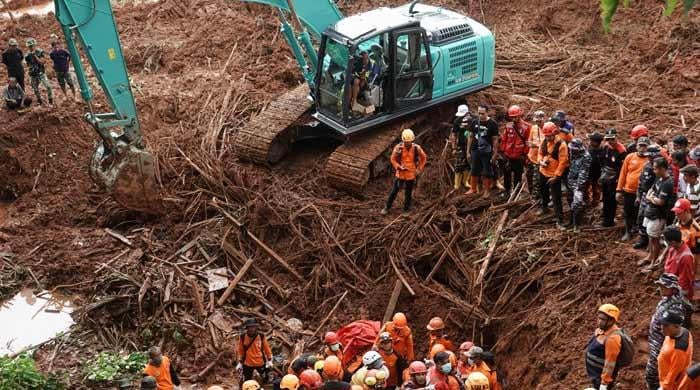
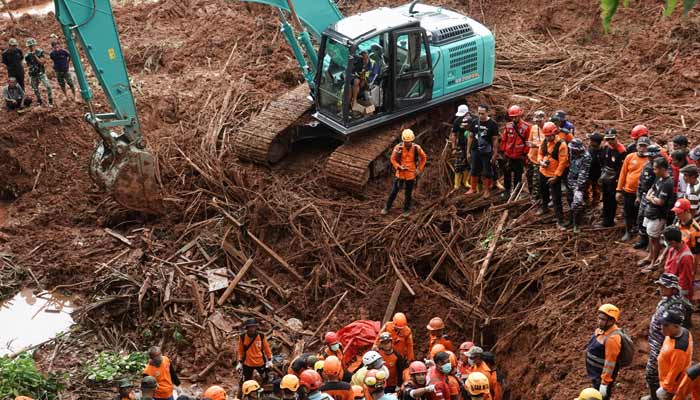
Rain-triggered landslides in two regions in Indonesia’s Central Java province last week have led to the deaths of at least 18 people, authorities said on Monday, with search operations ongoing.
A landslide in the city of Cilacap last week buried a dozen houses in Cibeunying village, said the disaster mitigation agency.
Search and rescue efforts were challenging as people were buried 3 to 8 metres (10 to 25 feet) deep, it said.
The Cilacap landslide has killed at least 16 people, with seven missing, said M Abdullah, chief of the search and rescue agency’s local division.
Excavators were deployed to dig through dirt in Cilacap, footage from news channel Kompas TV showed on Monday.
Separately, two people died and 27 were missing after a landslide on Saturday in the region of Banjarnegara in Central Java, the disaster mitigation agency said on Monday. As many as 30 houses as well as farms were damaged, it said.
The Southeast Asian country’s wet season started in September and is likely to last until April, bringing a high risk of extreme rainfall and flooding, the weather agency said.
Politics
India strikes US gas deal under Trump pressure


- India diversifies LPG sources with new US supply deal.
- India-US talks continue despite tariff, oil import disputes.
- US tariffs seen denting India’s GDP by up to 80 bps.
India said on Monday it had signed a “significant” deal that will see the United States supply nearly 10% of the Asian giant’s liquefied petroleum gas (LPG) imports, as it seeks to diversify its energy sources.
Relations between Washington and New Delhi plummeted in August after President Donald Trump raised tariffs on India to 50%, with US officials accusing the country of fuelling Russia´s war in Ukraine by buying its discounted oil.
Trump has claimed that Indian Prime Minister Narendra Modi has agreed to cut its Russian oil imports as part of a prospective trade deal — something New Delhi has not confirmed.
India and the United States remain in talks, despite disagreements over a range of issues, including agricultural trade and the Russian oil purchases.
Minister for Petroleum and Natural Gas Hardeep Singh Puri said India had signed the one-year deal for 2.2 million tonnes per annum of LPG, sourced from the US Gulf Coast, providing “close to 10%” of India´s annual imports of the fuel.
Puri said it was “the first structured contract of US LPG for the Indian market”.
“In our endeavour to provide secure, affordable supplies of LPG to the people of India, we have been diversifying our LPG sourcing,” Puri said in a statement, adding that “one of the largest and the world´s fastest growing LPG market opens up to the United States”.
In October, Indian state-backed refiner HPCL-Mittal Energy said it halted purchases of Russian crude after Washington imposed sanctions on Moscow’s two largest oil companies.
Reliance Industries, the privately owned main Indian buyer of Russian crude, has also said it is assessing the implications of the US restrictions, as well as those imposed by the European Union.
India’s economy, the fifth-largest in the world, grew at its fastest pace in five quarters in the three months ending June 30, helped by higher government spending and improved consumer sentiment.
But US tariffs continue to overshadow the economy, with experts projecting that they could shave anywhere between 60 to 80 basis points off GDP growth this fiscal year, if there is no relaxation soon.
Politics
Timeline of key events behind Sheikh Hasina’s death sentence
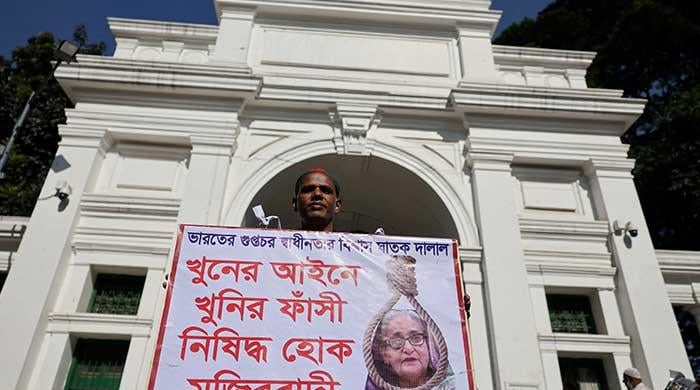
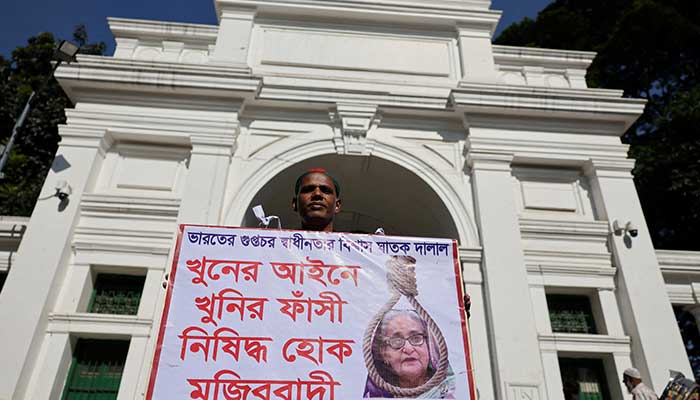
A Bangladesh court sentenced ousted Prime Minister Sheikh Hasina to death on Monday, concluding a months-long trial that found her guilty of ordering a deadly crackdown on a student-led uprising last year.
The Muslim-majority South Asian country of 170 million people has grappled with instability since Hasina fled to India in August 2024 at the height of the uprising. Here are the key events:
Deadly protests
Protesters led by the “Students Against Discrimination” group initially wanted quotas in public sector jobs, but the movement escalated in July 2024 as they demanded Hasina’s resignation and clashed with security forces and supporters of her Awami League party.
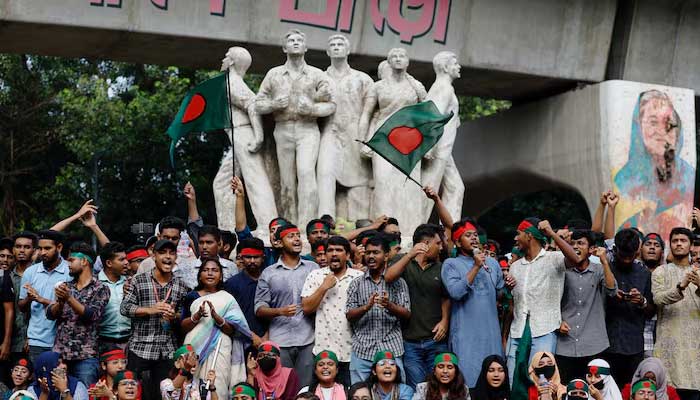
Protesters blamed the government for a crackdown that killed hundreds of people and injured thousands with unrest peaking on August 5 when Hasina was forced to flee to neighbouring India just before crowds stormed her official residence. She has stayed since in the Indian capital New Delhi.
Yunus as de facto PM
An interim government was formed and tasked with restoring stability and preparing for parliamentary elections. Nobel laureate Muhammad Yunus, 85, took charge as de facto prime minister.
Elections will be held in early February, he has said.
The interim government promised sweeping institutional reforms but progress has been slow and fragmented, despite broad consensus on key reforms such as restoring a non-partisan caretaker government to oversee elections, depoliticising state institutions and overhauling the Election Commission.
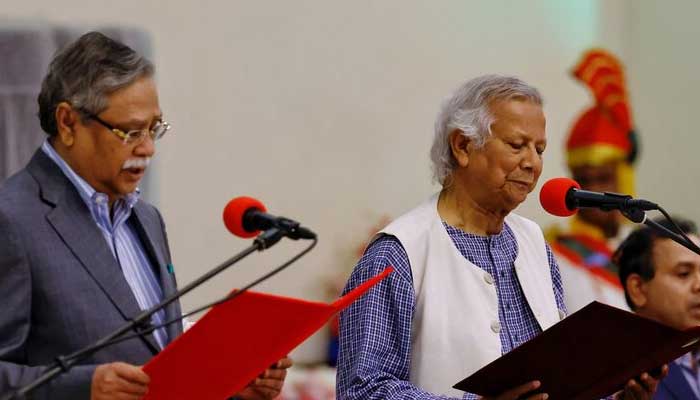
But deeper reforms have stalled in the face of sharp disagreements between political parties over proposals for constitutional change, judicial reform and introduction of a bicameral parliament.
Political analysts have pointed to a widening gap between public expectations and outcomes.
Elections
Yunus’ government is caught between the need for reform and pressure for early elections, its biggest challenge.
Further strain has been added by the controversy over the exclusion of Hasina’s Awami League party, after its registration was suspended, effectively barring it from contesting.
Many want it to participate, despite its top leadership being prosecuted for alleged violations of human rights during the protests. Without broad political inclusion, the legitimacy of a vote could be suspect.
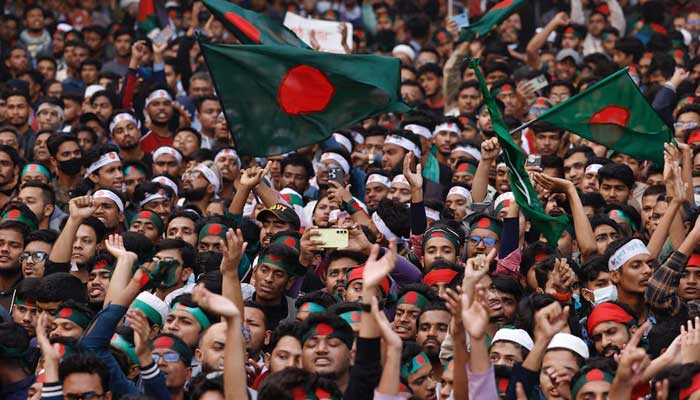
The newly formed National Citizen Party (NCP), born out of the 2024 protests, is viewed by critics as being favoured by Yunus’ administration, which the government denies. But the suspicion could also cloud the credibility of the vote.
Fragility
Law enforcement remains a challenge. Political violence, mob attacks and harassment of journalists and minorities, especially women, are regularly reported.
Mob violence claimed at least 261 lives between August 2024 and October 2025, says rights group Ain o Salish Kendra.
New York-based Human Rights Watch warns that while some authoritarian practices have ended, the interim government has adopted troubling tactics of its own.
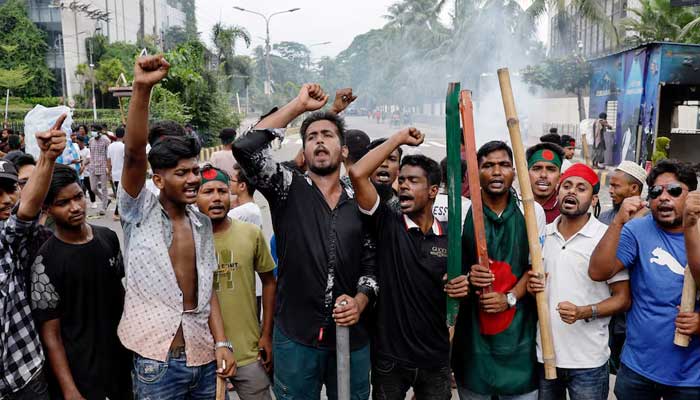
Among these are arbitrary detentions, mass arrests, and politically motivated prosecutions mostly targeted at supporters of Hasina’s party, the group said.
Torture in custody and use of the Special Powers Act continue, mirroring repressive tactics of the past, HRW said.
The interim government denies the charges.
‘July Declaration’
A charter called the ‘July Declaration’ after last year’s uprising has laid out the roadmap for democratic reforms.
Last week, Yunus said the interim government will hold a national referendum alongside the February parliamentary vote on implementing the charter for state reform, saying it will be implemented depending on the outcome of the referendum.
The charter will eventually become a part of the constitution if approved by the new parliament.
The July Charter seeks to reshape the country’s politics and institutions and give constitutional recognition to the 2024 uprising. ‘
It envisages increased representation of women, limiting the prime minister’s term, strengthening presidential powers, expanding fundamental rights and ensuring judicial independence.
Politics
Bangladesh’s former PM Hasina sentenced to death over student crackdown
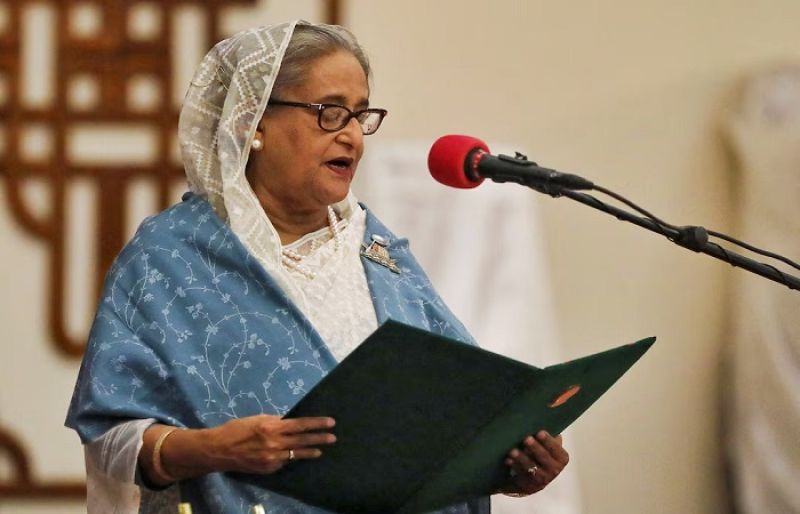
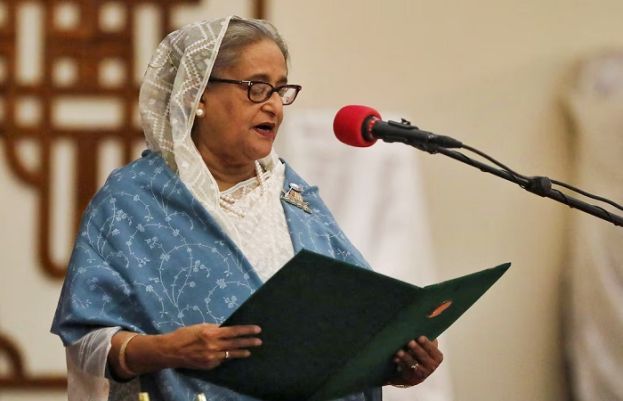
A Bangladesh war crimes tribunal on Monday handed down a death sentence to ousted Prime Minister Sheikh Hasina, wrapping up a months-long trial that held her responsible for ordering a lethal crackdown on a student-led uprising last year.
The verdict marks one of the most consequential legal actions against a former Bangladeshi premier in decades and comes just months before national elections expected in early February.
With Hasina’s Awami League already barred from contesting, fears are mounting that the ruling could ignite renewed unrest ahead of the polls.
The International Crimes Tribunal, Bangladesh’s domestic war crimes court based in Dhaka, announced the judgment under stringent security measures and in Hasina’s absence, as she fled to India in August 2024.
Hasina received a life sentence for crimes against humanity and the death penalty for the killings that occurred during the uprising. The courtroom erupted in cheers and applause as the death sentence was read out.
The former premier retains the right to challenge the decision before the Supreme Court. However, Hasina’s son and adviser, Sajeeb Wazed, told Reuters a day before the ruling that they would not pursue an appeal unless a democratically elected government—one including the Awami League—takes office.
During the trial, prosecutors claimed they had obtained evidence proving Hasina ordered security forces to use deadly force to crush the student movement that swept the country in July and August 2024.
A United Nations assessment estimated that as many as 1,400 people were killed between July 15 and August 5, 2024, with thousands more injured—many from gunfire by security forces.
Hasina was defended by a state-appointed lawyer, who insisted the charges were fabricated and urged the court to acquit her.
The former premier, however, had repeatedly dismissed the proceedings as politically motivated, calling the outcome “predetermined.”
Tension had been rising nationwide in the days leading up to the verdict, with at least 30 crude bomb blasts and 26 vehicles torched across different cities. No casualties were reported.
Hasina, 78, who has remained in India since she was overthrown in August 2024, challenged the legitimacy of the Tribunal in an email interview with Reuters last month.
“These proceedings are a politically motivated charade,” she said. “They have been brought by kangaroo courts, with guilty verdicts a foregone conclusion. They are presided over by an unelected government which consists of my political opponents.”
She also said she was denied adequate notice of the hearings and any meaningful opportunity to mount a defence, adding that she was not personally involved in the use of lethal force or other alleged crimes.
The Muslim-majority South Asian country of 170 million people has been governed by an interim administration headed by Nobel Peace laureate Muhammad Yunus since Hasina fled. Although the country has been largely peaceful since, political stability is yet to return.
In the Reuters interview, Hasina warned of growing anger among supporters of the Awami League and said that millions of party loyalists would boycott the parliamentary elections in February.
On Monday, security remained tight across Dhaka and other major cities, with paramilitary forces deployed around key government buildings and the tribunal complex.
-

 Tech7 days ago
Tech7 days agoFrom waste to asset: Turning ethanol production CO₂ into jet fuel
-

 Tech2 days ago
Tech2 days agoNew carbon capture method uses water and pressure to remove CO₂ from emissions at half current costs
-

 Politics4 days ago
Politics4 days agoBritish-Pakistani honoured for transforming UK halal meat industry
-

 Sports2 days ago
Sports2 days agoTexas A&M officer scolds South Carolina wide receiver after touchdown; department speaks out
-
Sports1 week ago
College football winners and losers: The catch of the year saves Indiana
-
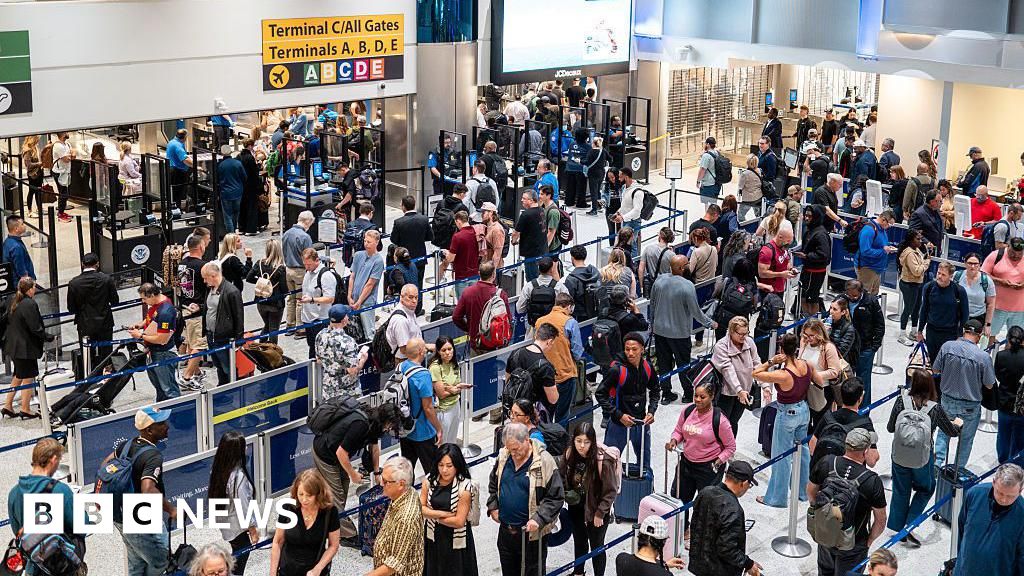
 Business1 week ago
Business1 week agoMore than 1,000 flights cancelled as US air traffic cuts enter second day
-
Sports1 week ago
The next Tom Brady? No, Drake Maye is a different breed.
-

 Sports1 week ago
Sports1 week agoSteelers vs. Chargers (Nov 9, 2025) Live Score – ESPN






